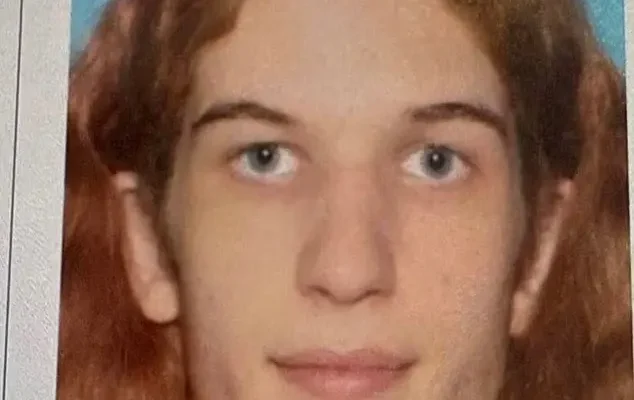The devastating attack at Annunciation Catholic School in Minneapolis has left a nation reeling, with two children killed and many more injured during a morning service. While the community grieves, political and cultural divisions have erupted almost immediately, prompting calls for restraint and unity.
Authorities have confirmed the shooter, identified as 18-year-old Robin Westman, the trans daughter of someone who worked at the school, died at the scene after opening fire. Police Chief Brian O’Hara described the act as “deliberate violence against innocent children” and said investigators are now piecing together evidence from a disturbing online trail left behind.

Almost instantly, the tragedy has spilled into a political firestorm. Reports about the shooter’s identity and alleged motivations set off partisan clashes on social media and in Washington.
Some conservative voices focused heavily on Westman’s gender identity and anti-Trump messages reportedly scrawled on weapon parts. They claimed the revelations proved what they described as “radicalisation of young Americans.”
Democrats, however, warned against turning the tragedy into a culture-war battleground. Minneapolis Mayor Jacob Frey was blunt, condemning both the act of violence and those seeking to weaponise the shooter’s personal identity.
“Anybody who is using this as an opportunity to villainize our trans community or any other community out there has lost their sense of common humanity,” Frey said at a press conference. “Kids died today. This needs to be about them.”
Beyond the cultural commentary, the tragedy has again raised urgent questions over America’s gun laws. Police confirmed Westman legally purchased three firearms used in the attack — a rifle, a shotgun and a pistol. All were fired during the assault.
The fact that such a young person had access to an arsenal of deadly weapons reignited a debate that has become grimly familiar. Parents gathered outside the school in shock and disbelief, demanding answers from lawmakers.
“This is not about politics, this is about the lives of children,” said one father who rushed to the scene after receiving a frantic call from his wife. “How many times do we have to do this?”
Democratic leaders urged bipartisan discussions on background checks and firearm restrictions, while Republican lawmakers in Minnesota stressed the need for “better mental health resources” rather than new gun control measures.
Investigators are combing through a series of disturbing online posts linked to Westman, including a video uploaded to YouTube hours before the shooting. The content appeared to outline possible attack plans and revealed a fascination with previous mass shooters.
Authorities confirmed the shooter blocked some church exits before opening fire through stained glass windows, seemingly to trap victims inside. The chilling level of planning has shocked even veteran investigators.
While many details remain under review, the release of such material online has sparked further discussion about social media platforms’ responsibility to monitor dangerous content.
Among the most politically charged details is the revelation that one of Westman’s firearms carried a message calling for former president Donald Trump to be killed.
This element of the investigation has added fuel to partisan commentary. Trump allies argued that the shooting highlighted the dangers of “anti-conservative radicalisation.” Meanwhile, Democratic officials urged the public not to sensationalise individual details, stressing the focus should remain on victims and gun reform.

At Annunciation Catholic School, grief hangs heavy. The school had only just reopened for the year, with pupils attending their first full week of classes.
Local clergy described the scene as “unimaginable.” Vigils have been planned across Minneapolis, with residents leaving flowers, candles and children’s toys outside the school gates.
Father Michael O’Reilly, who leads services at the adjoining church, urged families to hold together. “This community is strong, but we are broken today,” he said.
The shooting once again underscores the inescapable debate at the heart of American life: how to balance gun rights enshrined in the Constitution with the reality of mass shootings in schools and public spaces.
Critics point to the uniquely American frequency of such attacks, noting that despite years of debate, little meaningful legislation has been passed at the federal level.
President Joe Biden has not yet issued a detailed statement but has repeatedly pushed for stronger background checks and restrictions on assault-style weapons. With a divided Congress, however, prospects for new legislation remain slim.
In Minneapolis, officials continue to stress unity over division. Chief O’Hara described the act as “cowardice” and warned against scapegoating communities.
Mayor Frey echoed the sentiment, urging Americans not to let the tragedy become another flashpoint in a toxic culture war.
“We should not be operating out of a place of hate for anyone,” he said. “We should be operating from a place of love. This must be about the children whose lives were cut short, and the families who will never be the same.”
As investigators examine the shooter’s background and motivations, Minneapolis remains focused on recovery. Support centres have been established for families and survivors, while schools across the city have ramped up security.
The tragedy has once again forced America to confront familiar questions — and sparked a political row that shows no sign of abating. For grieving families in Minneapolis, however, the immediate concern is not politics but loss.




